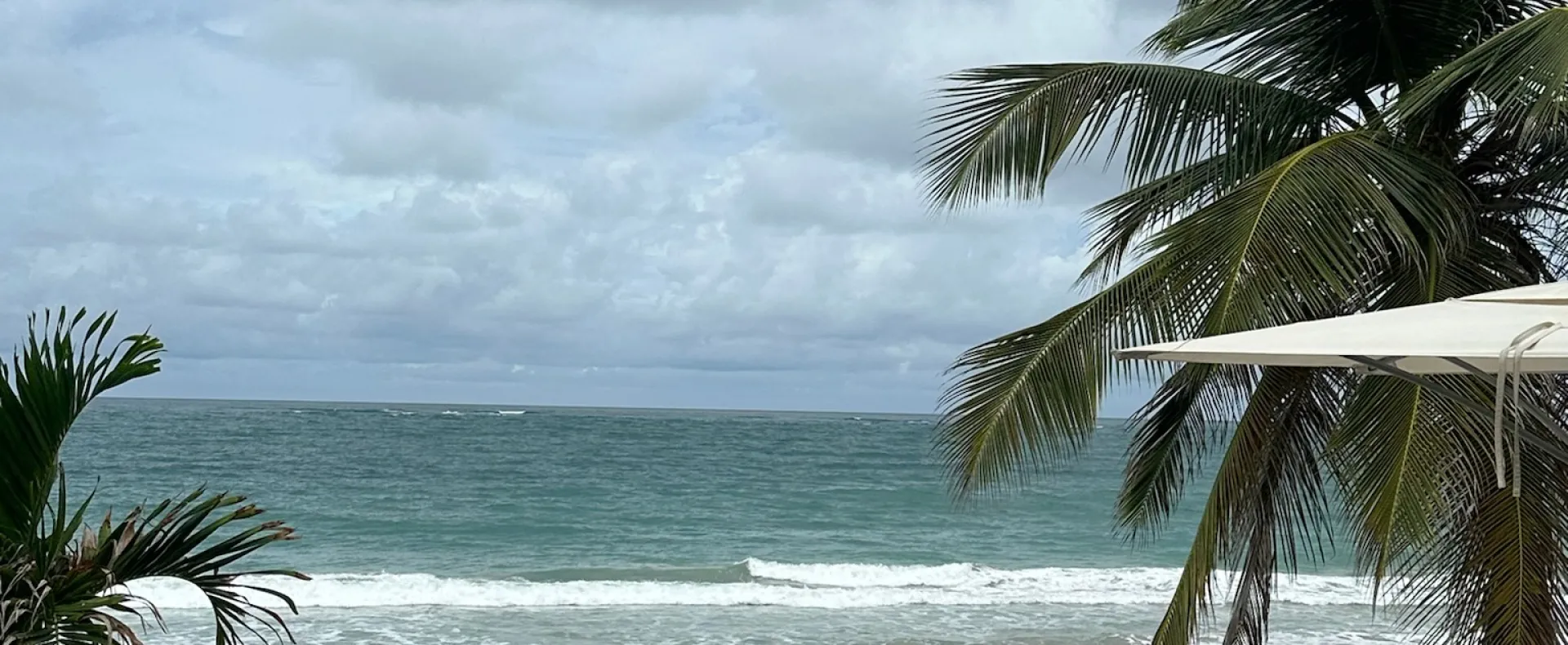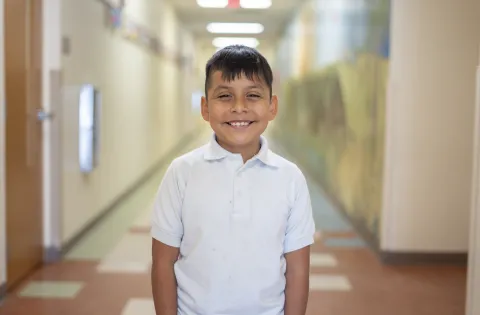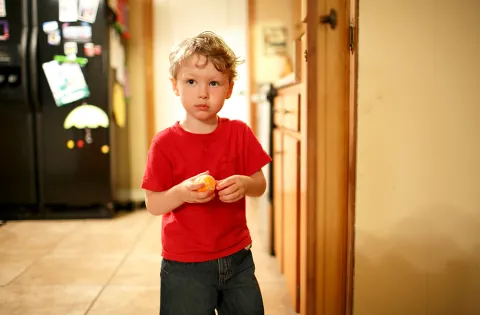Puerto Rico is a land of breathtaking beauty, where turquoise beaches and lush mountains inspire a vibrant culture in the island and across the diaspora in places like New York and Pennsylvania. From the contributions of icons like Rita Moreno, Lin-Manuel Miranda and No Kid Hungry supporter Dayanara Torres to the work of everyday people, Puerto Ricans are known for their creativity and strength.
It was under the most difficult of circumstances that the generous and resilient spirit of Puerto Ricans came to light. Hurricane Maria was a disaster without precedent on the island. The disruptions to the power grid, the water supply and healthcare caused close to 3,000 deaths. Puerto Ricans came together like never before.

“Aquí tenemos un dicho, ‘donde come uno, comen diez’, (Here we have a saying, ‘where one eats, ten can eat’),” said Mari Jo Laborde, president and CEO of Banco de Alimentos, the only food bank of Puerto Rico. She went on to share how in the middle of the destruction caused by Maria, she witnessed the most beautiful thing, neighbors coming together to share meals and take care of one another. Her organization went to fill in the gaps. No matter the challenge Puerto Ricans always get up and face it.
“Sometimes the word resilient feels overused because we say, how much more resilient do we have to be?” added Laborde. Puerto Rico has not only endured the changes and lasting effects of the hurricane but also persistent historical challenges, such as economic shifts, high prices for imported food and unreliable institutional dependence.
While Hurricane Maria showcased the strength of Puerto Rican communities, many families face ongoing struggles, including childhood hunger. Summer can be particularly challenging for kids as so many of the meals that they receive in schools may not be available any more. The situation is especially challenging for kids living in mountainous regions that are difficult to access.


"So many families in Puerto Rico, especially in the mountains, rely on the strength of grandparents who take on immense responsibilities despite having so little. Their stories are a reflection of the heart and unity of our people," said Laborde.
She recalled the story of a 70-year-old grandmother living in an isolated area in the mountains. She is taking care of her 4 grandkids and her bedridden 90-year-old mother. The parents of the grandkids left for the mainland in search of better opportunities, a situation that is repeated across the island. Even with her limited resources and challenges, this grandmother provides care and love for her grandchildren and mother.
"In the mountains, families like this find ways to make do with what little they have. If there’s no rice, they’ll share vegetables; if there’s no money, they’ll find a way to help each other. It’s a level of resourcefulness and community support that never ceases to amaze me," Laborde explained.
In rural areas, transportation and infrastructure are often inadequate, making it challenging for families to reach services or for food deliveries to reach them. No Kid Hungry and the Banco de Alimentos have partnered with the goal of bringing summer meal deliveries to these remote locations making it easier for kids to thrive during the summer months. With your support, we have partially funded a vehicle that can navigate the narrow roads of the mountains.
Even though it is hard to think about summer in December, organizations like Banco de Alimentos know that the stakes are high for kids and preparation needs to start right now.
"We start planning months in advance to make sure kids don’t go without meals when school is out," said Mari Jo Laborde.
Closing the summer meal gap for kids is essential for ending childhood hunger in America. This is something that we can do together and the work has to start today.

As the preparations for summer of 2025 continue, Banco de Alimentos is committed to ensuring that no kid on the island goes hungry, no matter how remote their home might be. And this is what Puerto Rico is all about, taking care of one another, community and family.
Ways You Can Help
- Donate: $1 can help provide 10 meals* for kids. Your support will help us fund meal programs all over the country and help us advocate for policies that will help kids get the meals they need. *Donations help support programs that feed kids; No Kid Hungry does not provide individual meals. Learn more at NoKidHungry.org/OneDollar.
- Speak up for kids: Reach out to your elected officials and ask them to do more to end childhood hunger. Tell your lawmaker to advocate for policies that will help kids get the meals they need.



